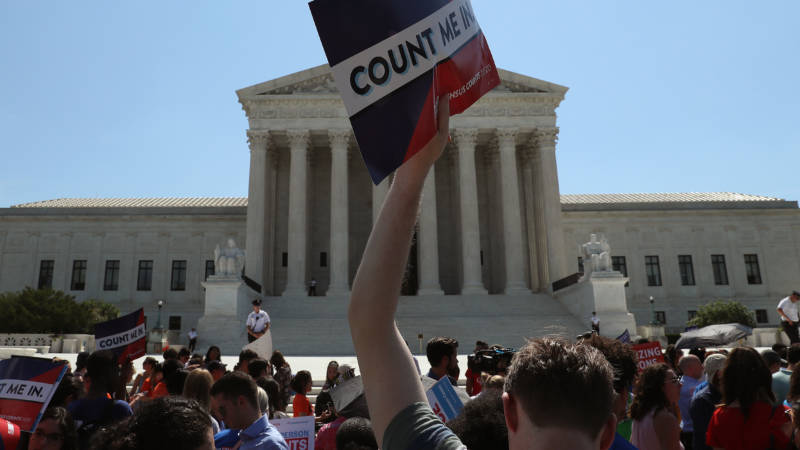Updated at 10:45 p.m. ET
The Trump administration has decided to print the 2020 census forms without a citizenship question, and the printer has been told to start the printing process, Justice Department spokesperson Kelly Laco confirms to NPR.
The move comes shortly after the Supreme Court ruled to keep the question off census forms for now and just a day after printing was scheduled to begin for 1.5 billion paper forms, letters and other mailings.
In recent days, President Trump had said he wanted to delay the constitutionally mandated head count to give the Supreme Court a chance to issue a more "decisive" ruling on whether the administration could add the question, "Is this person a citizen of the United States?" A majority of the justices found that the administration's use of the Voting Rights Act to justify the question "seems to have been contrived."
Trump said in a tweet Tuesday night, "A very sad time for America when the Supreme Court of the United States won't allow a question of 'Is this person a Citizen of the United States?' " He added that he has asked the Departments of Justice and Commerce "to do whatever is necessary to bring this most vital of questions, and this very important case, to a successful conclusion. USA! USA! USA!"
Asked whether the administration's decision to not add the question is final, Laco said in a text: "Confirm no citizenship question on 2020 census."
A federal judge has ordered Justice Department attorneys and Maryland-based plaintiffs in the citizenship question lawsuits to reach a written agreement by July 8 that formally confirms those plans, according to plaintiffs' attorney Thomas Saenz of the Mexican American Legal Defense and Educational Fund.
